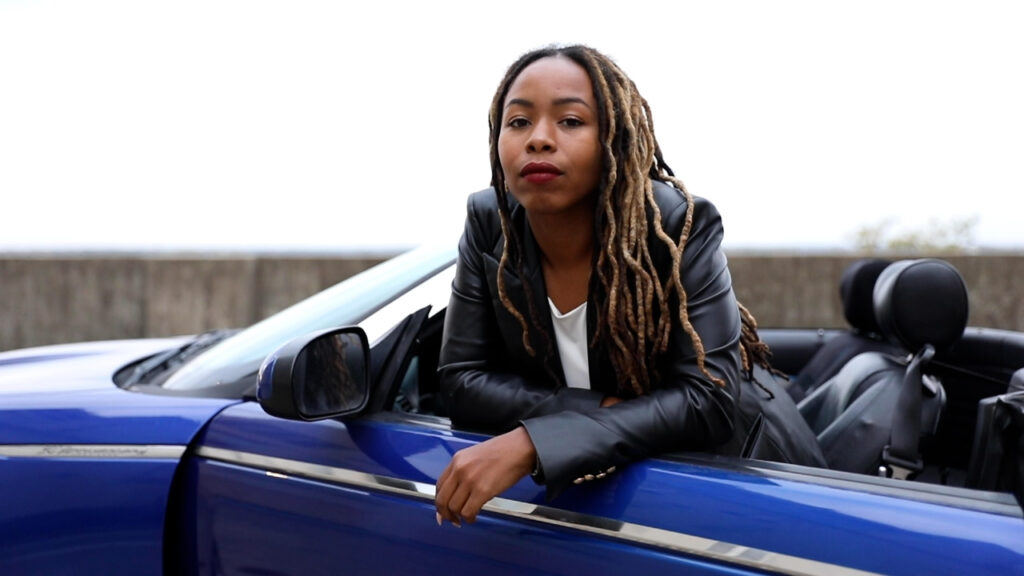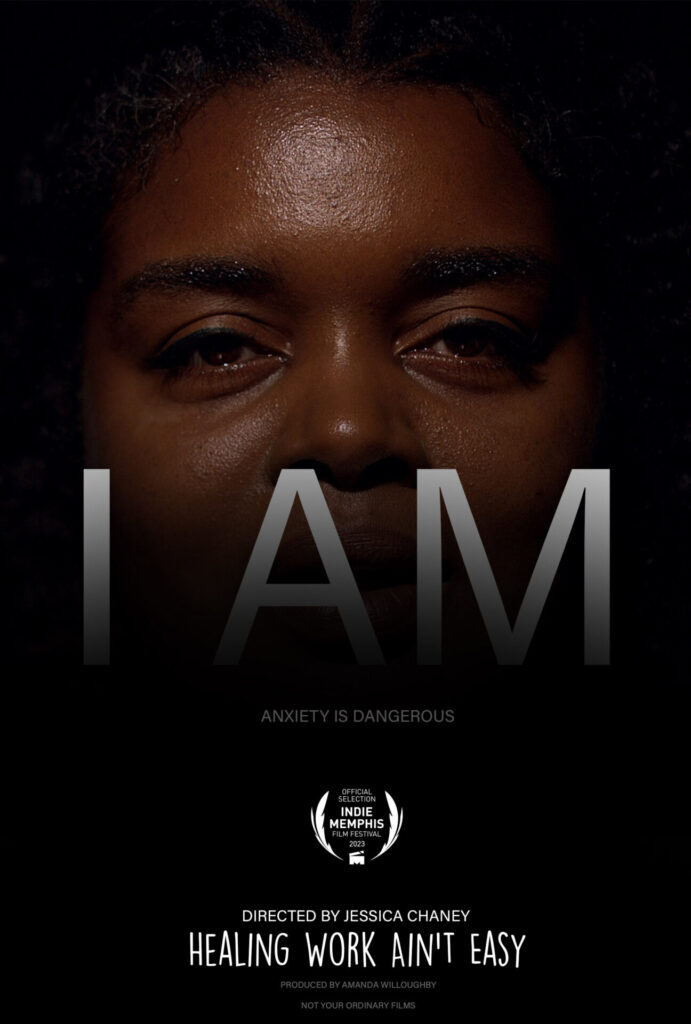Founders of Not Your Ordinary Films (NYOF), Jessica Chaney and Amanda Willoughby are the creators behind “I AM”, a documentary that launched in October. “I AM” centers on Black women who live with anxiety, tells stories about coping and thriving with a disorder that is often overlooked and misdiagnosed in Black women. Films that center Black women are often void of Black women working behind the camera and on the scene to ensure the voices are protected and the stories are told with honesty and dignity. These two women are changing the industry by choosing a career in film that centers Black voices through a mirroring lens.
Chaney and Willoughby met as co-workers at a Memphis Public Library and found a kinship in their shared desire to make movies. Willoughby, a graduate of the Memphis College of Art and a filmmaker, is the producer and editor for the project. She says their goal is to normalize Black people in mass media and tell the stories that are typically on the margins.
“We don’t want to make stereotypical Black content. We just want to tell everyday stories, normal stories, and these characters happen to be Black. Whatever comes along with being Black is going to show up in this story somewhere, anyway, because it’s our reality.”

“I AM” shares the dangers that lurk behind the shadows of anxiety that can render Black women strangers to their own thoughts. The force of this mental health disorder unveils the stark reality of the pressures and unfulfilled desires that silence Black women and often leave them to face the world alone.
The film was born out of personal experience for Chaney, director of the project, who suffered for years with anxiety. After participating in a director’s program at the University of South California (USC), she realized that telling her own stories could be a way to help others.
“Even from the time I was little, I’ve just genuinely enjoyed listening to people. I think people don’t understand how much others just want to be heard.”
Being understood and validated was a personal struggle for Chaney who for a very long time felt invisible. Although she has come to terms with this reality as a Black woman, some incidents still trigger these feelings.
“The other day, I was in Fresh Market, and I was in the middle of the aisle. Now, I am a fuller-figured girl, and I am in the middle of the damn aisle, and this white man was like, ‘Oh, I didn’t even see you there!’ And I was like, ‘Sir, how did you not see ME and be bold enough to tell me?’”

The women in the film are boldly telling their truths, unfiltered and uncensored. Like Chaney, they experienced exhaustion, frustration, depression, hurt and anger and realized they wanted more from life than these feelings that were holding them back.
Willoughby believes many aspects of Black women’s lives contribute to their anxiety, including racism, societal pressures and being expected to carry the burdens in all aspects of their lives. She says many Black women “Have the feeling that ‘if I do break, nobody is there to catch me, so I can’t be the one to break’.”
Chaney says that unlike other women, Black women are not allowed to have a full range of emotions. She wants this film to give Black women permission to feel joy.
Willoughby’s goal is for the film to resonate with Black women who want others to see their humanity.
“It comes back to people calling us intimidating, or I’ve heard aggressive, yet we’re always expected to be on top of things, and sometimes I am just winging it.”

They both acknowledge that Black women are often thrust into jobs and careers that can provide security for their families, sometimes forgoing their aspirations.
Chaney explains that becoming filmmakers has been a healing journey for them.
“Black women, we’re the doers and a lot of times, we don’t get the liberties to be the dreamers and the thinkers.”
She believes there is a huge pool of untapped talent among Black women who can be deterred by a lack of resources and guidance, which can lead to anxiety that shows up as irritability, anger and frustration.

“As they grow as women and in their careers, they are unlearning behaviors embedded for generations, such as justifying wanting beautiful things, taking trips or changing careers.”
She believes that telling important stories from their perspective is a calling.
“It’s so important for us to be in this position where we are able to take ownership of these stories. This is where we feel most comfortable and where it feels like joy.”
